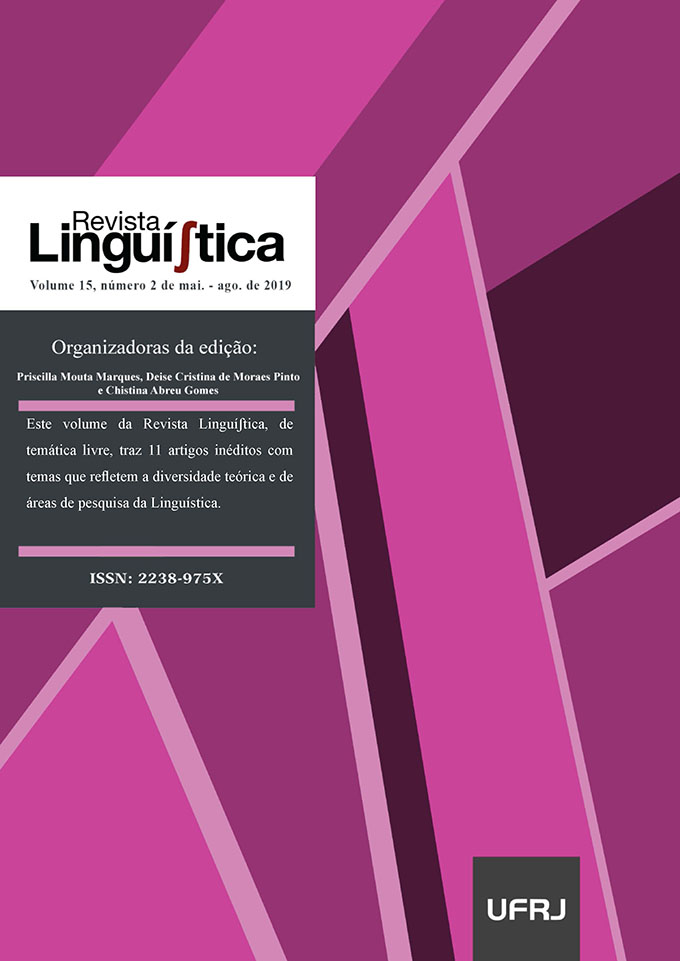The impact of past time reference on the use of pretérito perfecto in Buenos Aires
DOI:
https://doi.org/10.31513/linguistica.2019.v15n2a21330Keywords:
Perfect . Spanish. Linguistic Variation. Tense.Abstract
This paper analyses the variation between simple (PPS - estudié) and compound (PPC - he estudiado) forms of Perfect tense in Buenos Aires. Our hypothesis is that the kind of past reference is a factor that impacts the use of these verbal forms. From a corpus of radio interviews, we analyze the data considering the temporal contexts of absolute past (ABS) and ante-present (ANT). As a result, even with the intensive use of PPS, we identified the use of PPC in both ANT and ABS, especially in the specific ANT and the enlarded ANT.
---
DOI: http://dx.doi.org/10.31513/linguistica.2019.v15n2a21330
Downloads
Published
Issue
Section
License
Authors who publish in the Revista Linguí∫tica agree with the following terms:
The authors maintain their rights, ceding to the journal the right to first publication of the article, simultaneously submitted to a Creative Commons license permitting the sharing with third-parties of published content as long as it mentions the author and its first publication in the Revista Linguí∫tica.
Authors may enter into additional agreements for the non-exclusive distribution of their published work (for example, posting in online institutional or non-profit repositories, or book chapters) so long as they acknowledge its initial publication in the Revista Linguí∫tica.

The journal Revista Linguí∫tica is published by the Post-Graduate program in Linguistics of UFRJ and employs a Creative Commons - Attribution-NonCommercial 4.0 International (CC-BY-NC).









